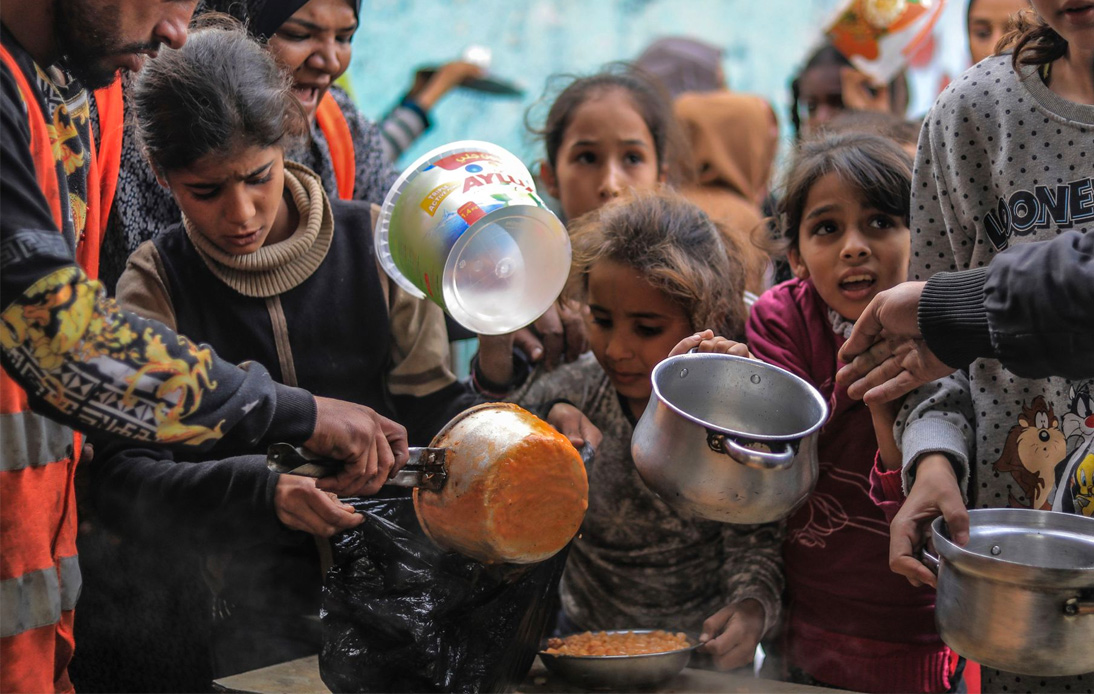
A senior UN aid official has raised the alarm that half of the population in Gaza is facing starvation amidst the ongoing Israel-Gaza conflict.
Carl Skau, the deputy director of the UN World Food Programme, reported that a minimal amount of the essential supplies is reaching the Gaza Strip. He noted that nine out of ten residents are struggling to find food daily.
Deliveries in Gaza have become “almost impossible,” stated Mr. Skau. Israeli authorities assert the necessity of continued airstrikes in Gaza to eliminate Hamas and rescue Israeli hostages.
Lt Col Richard Hecht, a spokesperson for the Israel Defence Forces, said that “any death and pain to a civilian is painful, but we don’t have an alternative”. “We are doing everything we can to get as much as possible inside the Gaza Strip,” he said.
Herzi Halevi, the IDF’s Chief of Staff, was recorded advising soldiers to intensify efforts as evidence suggests the weakening of terrorist networks due to surrenders.
The Biden administration has expedited the sale of 14,000 rounds of tank ammunition, valued over $106 million, to Israel, circumventing Congress through an emergency law.
Since October 7, when Hamas militants breached Israel’s fortified border fence, resulting in 1,200 deaths and 240 hostages, Gaza has experienced severe movement restrictions.
Israel responded by sealing its borders with Gaza and launching airstrikes, significantly affecting the delivery of crucial aid.
The Hamas-led health ministry reports over 17,700 Gazan fatalities, including 7,000 children, due to the Israeli counter-offensive.
Currently, only the Rafah crossing near Egypt remains operational, allowing limited aid into Gaza. Israel plans to open the Kerem Shalom crossing for aid lorry inspections, with subsequent movement to Rafah for entry into Gaza.
Mr. Skau described witnessing dire conditions in Gaza, including food scarcity, overcrowded shelters, and overwhelmed aid distribution centers.
A temporary ceasefire last month permitted some essential aid into Gaza, but the World Food Programme insists on the need for an additional border crossing. Mr. Skau reports that in some areas, 90% of families go a full day and night without food.
In Khan Younis, a city now encircled by Israeli tanks, residents describe a desperate situation. Dr. Ahmed Moghrabi, head of the plastic surgery and burns unit at Nasser hospital, spoke tearfully about the severe food shortage affecting his family and patients.
Israel maintains that Hamas leaders are sheltered in Khan Younis, possibly within an underground tunnel network, and is conducting a thorough military operation to neutralize their capabilities.
Palestinian President Mahmoud Abbas accused the US of war crimes complicity after it vetoed a UN Security Council resolution demanding an immediate ceasefire in Gaza.
Out of 15 Security Council members, 13 voted for the ceasefire resolution, with the UK abstaining and the US opposing.
President Abbas blames the US for the ongoing violence in Gaza, particularly against Palestinian civilians.
US Ambassador Robert Wood defended the veto, arguing that the proposed ceasefire would have left Hamas in a position to repeat its October 7 actions.
Israeli Prime Minister Benjamin Netanyahu commended the US for its stance in the Security Council.
A recent seven-day ceasefire, which saw the exchange of 78 hostages for 180 Palestinian prisoners, has ended, leaving over 100 hostages still in Hamas’s custody.




















